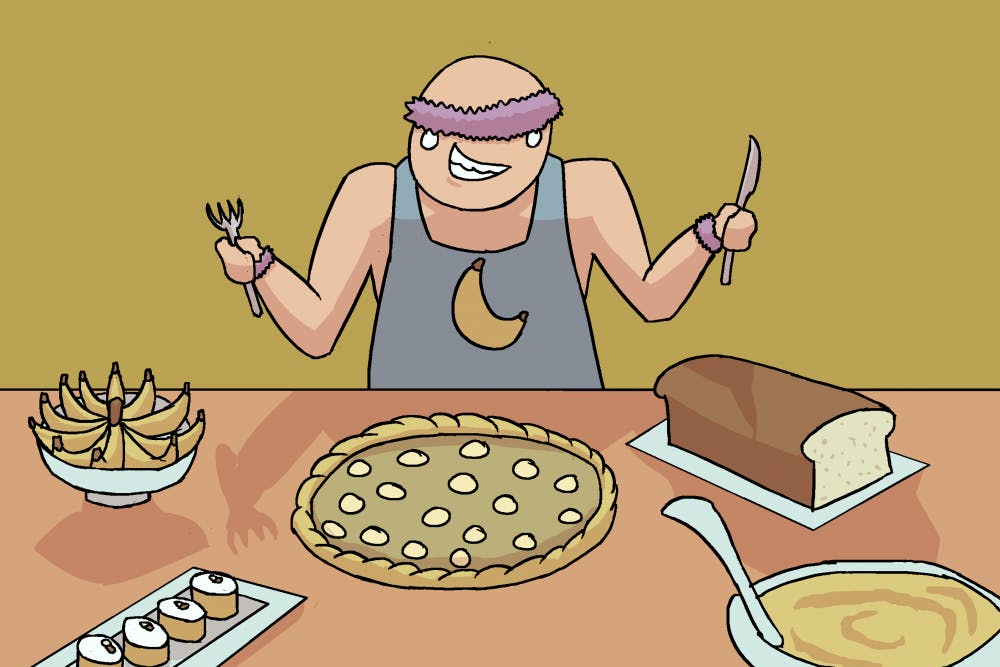Search “how to lose weight” in Google and you will see many variations of “how to lose weight fast” or “how to lose weight in a day.” Losing weight quickly has led to the emergence of many unreasonable fad diets, making weight loss a fad in and of itself.
Losing weight is a struggle for many; it takes dedication and a long-term commitment to eating clean and exercising. Naturally, as humans, we look for shortcuts.
Instead of looking to make a lifestyle change that could potentially improve our health or lead to weight loss, people seek quick weight loss programs. These programs could lead to temporary weight loss but often involve other health consequences.
Many of these fad diets involve the elimination of certain food groups or promote eating only a select few foods. For example, one diet involves dipping cotton balls in orange juice and eating them to curb hunger while another involves eating primarily cabbage soup everyday.
Although these diets seem unreasonable, they are usually popular for a short time before the public exposes them for being unhealthy. What people fail to realize is that all fad diets are unhealthy because they eliminate food groups that our bodies need to thrive.
“Over the course of decades during which people incorporate these fad diets into their eating patterns, they become depleted of specific nutrients,” Megan A. Kniskern, ASU nutrition lecturer, said. “It causes them to swing in the opposite direction, where they resume consuming large amounts of food that aren’t in moderation.”
According to Reader’s Digest, common symptoms of fad diets include dehydration, fatigue, digestive problems and malnutrition. Although these are risks many are willing to take, especially for those with body image issues, fad diets have yet to be successful in the long term.
Fad diets are very restrictive; therefore, natural cravings will often take over, and individuals will “cheat.” This usually kick starts a cycle of flipping back and forth between adhering to the diet and giving in to these cravings. This can even develop into a binge eating disorder in which fad diet users begin having episodes of uncontrolled, excessive eating. Considering that binge eating is the most common eating disorder in the U.S., people should maybe consider the consequences of partaking in fad diets.
“The restrictive mentality is beneficial only as long as you’re seeing the benefits of that diet," Kniskern said. "Once you no longer mentally feel like you’re losing weight, you overdo it by consuming those foods you deprived yourself of to begin with."
Additionally, it is important to recognize that fad diets can not be maintained in the long-term. If one was successful in losing weight through the use of a fad diet, he or she could potentially regain that weight after returning to normal eating habits.
“Over time, fad diets actually lead to higher obesity rates and lower metabolic rates. It’s huge issue,” Kniskern said.
People ought to seek long-term weight loss programs by observing behavioral changes that have proven to improve a person’s health. For example, eating many small meals throughout the day to boost metabolism, consistent exercise to burn fat and healthy, non-processed foods for overall health are some ways to keep the body fit.
“Fad diets are for a day, f-a-d. Fad diets are not representative of what someone can do for the rest of their life or even a significant period of their life,” Kniskern said. “The problem with these fad diets is that they are being done with one particular purpose and that is to improve health status or to improve weight weight. They are not really overarching diets that are beneficial for the long term.”
Reach the columnist at ghirneis@asu.edu or follow @ghirneise2 on Twitter.
Editor’s note: The opinions presented in this column are the author’s and do not imply any endorsement from The State Press or its editors.
Want to join the conversation? Send an email to opiniondesk.statepress@gmail.com. Keep letters under 300 words and be sure to include your university affiliation. Anonymity will not be granted.
Like The State Press on Facebook and follow @statepress on Twitter.




